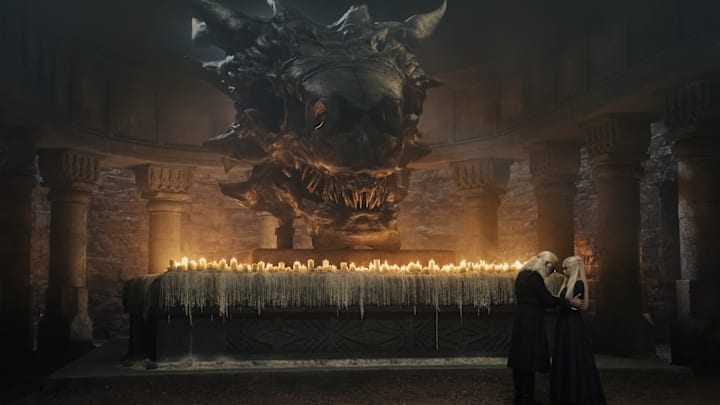Game of Thrones is the biggest hit in the history of HBO, but it didn't start that way. In the beginning, HBO's adaptation of George R.R. Martin's A Song of Ice and Fire books was a relatively unassuming high fantasy series that had to scrimp on its budget. In the ninth episode, "Baelor," rather than depict a battle from Martin's books, they had Tyrion Lannister get hit on the head right before the battle starts and only come to after it's over. That's the kind of ingenuity the HBO accountants love.
"The order we got from the studio was, 'Don't make it as expensive as Rome. We're not doing another Rome,'" George R.R. Martin told Collider, looking back on the series long after the fact. Rome, for the record, was an expensive drama about ancient Rome that cost HBO around $100 million for one 12-episode season. It lasted two seasons.
Game of Thrones grew more popular, ambitious and expensive over time; the eighth and final season cost around $15 million per episode, although since there were only six episodes that still means it cost less than a season of Rome. The real feeding frenzy didn't start until after Game of Thrones was over. HBO's Game of Thrones prequel series House of the Dragon cost "under $20 million" to produce in its 10-episode first season, which we can assume means well over $10 million. The first season of The Rings of Power, a Lord of the Rings prequel show on Amazon Prime Video, cost around $465 million to produce. Prime Video also spent $300 million on the first season of Citadel, a spy series almost no one remembers. It's getting pretty nuts.
For a while, it seemed like streaming services were just writing blank checks for these kinds of shows, but lately thinking has changed. Talking about a new Game of Thrones prequel series coming out later this year, HBO executive Francesca Orsi recently discussed how HBO, at least, is looking to do things for less. "We’re doing a Game of Thrones spinoff titled A Knight of the Seven Kingdoms for under $10 million in episode, [which is peanuts] relative to what Game of Thrones or House of the Dragon cost episodically," she said. "And the battle sequences that the directors achieved match those across Game of Thrones and are a fraction of the price, so it’s a lesson for us that we need to be challenging these budgets."

A Knight of the Seven Kingdoms is based on the Tales of Dunk and Egg novellas by George R.R. Martin, which are altogether smaller in scale than his other stories set in Westeros; it makes sense that it would cost less. HBO is also developing a few other Game of Thrones ideas, including a show about Aegon's Conquest, which Orsi says is "very big budget."
But given how much sensitive Hollywood is becoming to making sure it gets returns on its dollar, I wonder if the age of mondo-budget shows is coming to an end. Speaking about those other Game of Thrones prequel shows, Martin says they "face the same things" that the original series did when it comes to budget.
A correction like this was pretty much inevitable. No studio could spend hundreds of millions of dollars on a show like Citadel — which got middling reviews, middling viewership and which made basically no cultural impact — and think it's a good idea to keep spending this large. I think that the networks who know how to spend money and make good TV while at it, like HBO, will find a way through. Studios with less quality control, like Prime Video, might have to do some readjusting.
To stay up to date on everything fantasy, science fiction, and WiC, follow our all-encompassing Facebook page and Twitter account, sign up for our exclusive newsletter and check out our YouTube channel.
